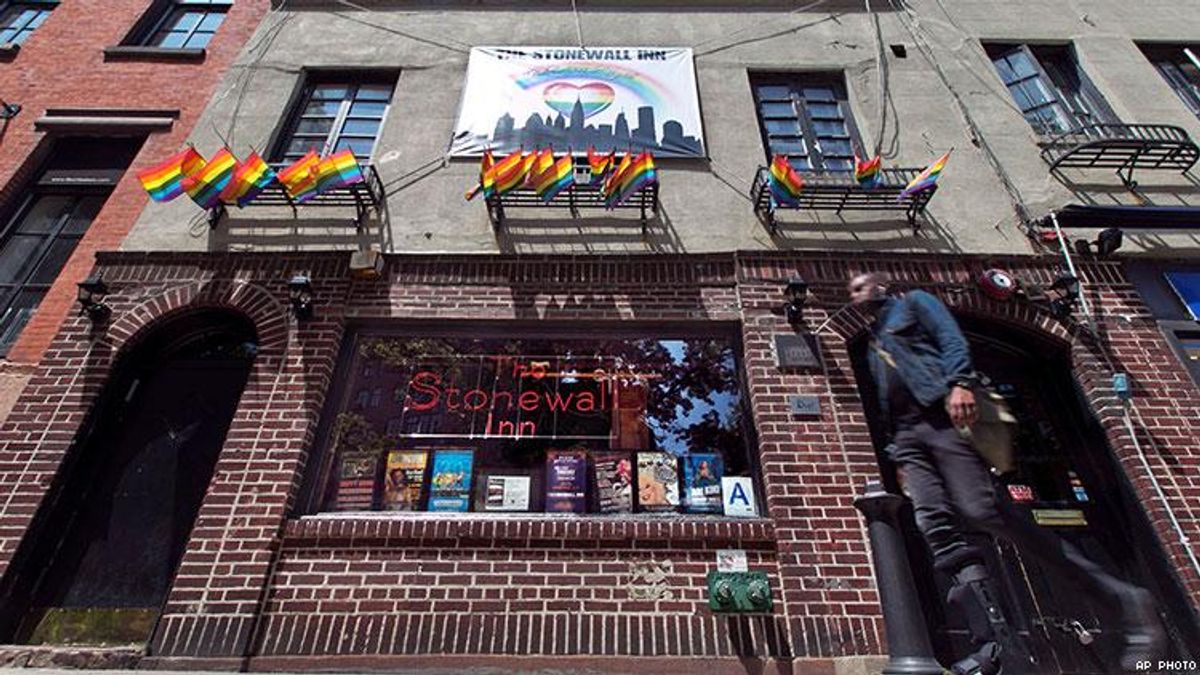In the early 1990s, a controversy over including LGBTQ material in New York City's public school curriculum got the top education official fired and inspired a teacher to come out. But today that teacher is a member of the City Council who has led the charge for funding an inclusive curriculum that has won widespread support.
"Its very different from when I came out in 1992," says Daniel Dromm, who chairs the City Council's Finance Committee.
Dromm was a teacher in the New York public schools that year, when Chancellor Joseph Fernandez backed a curriculum called "Children of the Rainbow," designed to teach children about diversity in race and other facets of identity, including sexual orientation. Just a tiny portion of the curriculum guide dealt with gay and lesbian issues, but it was enough to cause huge resistance from school board members. The curriculum was never adopted, and in 1993, Fernandez's contract was not renewed.
And since then, one of Dromm's goals has been to get an LGBTQ-inclusive curriculum into the public schools.
He was elected to the City Council in 2009, representing a district in Queens, and last year, as Finance Committee chair, he led the effort to fund the curriculum. In the budget for its 2019 fiscal year, which began last July, the council allocated $600,000 for inclusive educational programming.
The curriculum includes lessons about LGBTQ history and the pioneers of the LGBTQ rights movement; studying authors of color, with the students then meeting the authors; providing support to student gender and sexuality alliances (formerly known as gay-straight alliances); lessons for parents and families of LGBTQ youth on acceptance; and a partnership with public TV station WNET to give students online access to videos on LGBTQ figures and issues.
Through the curriculum, students will learn about history-making figures like Harvey Milk, Bayard Rustin, Audre Lorde, Barbara Gittings, Marsha P. Johnson, Sylvia Rivera, and more. They'll also meet people who are making history and creating culture today through a partnership with Lambda Literary's Writers in Schools program, which has already started. Students have already been able to meet LGBTQ writers, which Dromm says has been "a highly motivational thing for these kids."
Other aspects of the curriculum include the development of an interactive map to LGBTQ historic sites in all five boroughs of the city. It shows that such history didn't take place just in Manhattan's Greenwich Village at the Stonewall Inn, but also at PFLAG founder Jeanne Manford's home in Queens.
The LGBTQ material is available at all levels of education, in an age-appropriate fashion, Dromm says. And unlike in 1992, there has really been no backlash.
"The feedback has been fantastic," he says.
Council Speaker Corey Johnson, also a gay man, has championed the curriculum along with Dromm. Johnson, who came out at age 16, says he would have loved to have access to information like this when he was in high school.
"I can't imagine what a difference this would have made," says Johnson, who recalls feeling extremely isolated at the time. He didn't know any other gay people, and he didn't receive any information about LGBTQ history. "For me, this is personal," he says.
He and Dromm are committed to continuing and expanding the curriculum, and hope to increase the funding. "We're going to continue to push for funding on LGBT issues generally, and on this issue especially," Johnson says. They also want students to learn about other historically marginalized communities, he adds.
Dromm notes, "What both of us are aiming to do is make it easier and more natural for kids to come out in schools and be accepted."
The program has much support from other city officials such as schools Chancellor Richard Carranza (who has a twin brother, Reuben, who's gay) and Jared Fox, the LGBTQ liaison in the city's Department of Education, Dromm says.
Dromm is still struck by the difference in reaction to this curriculum almost 30 years later.
"It's amazing to me," he shares, stating that this reflects the changes in society due to more LGBTQ people coming out. "People's hearts and minds have been opened," he says.
"When people get to know us, it's hard to discriminate against us."
 From left: Corey Johnson and Daniel Dromm
From left: Corey Johnson and Daniel Dromm
































 From left: Corey Johnson and Daniel Dromm
From left: Corey Johnson and Daniel Dromm

















































